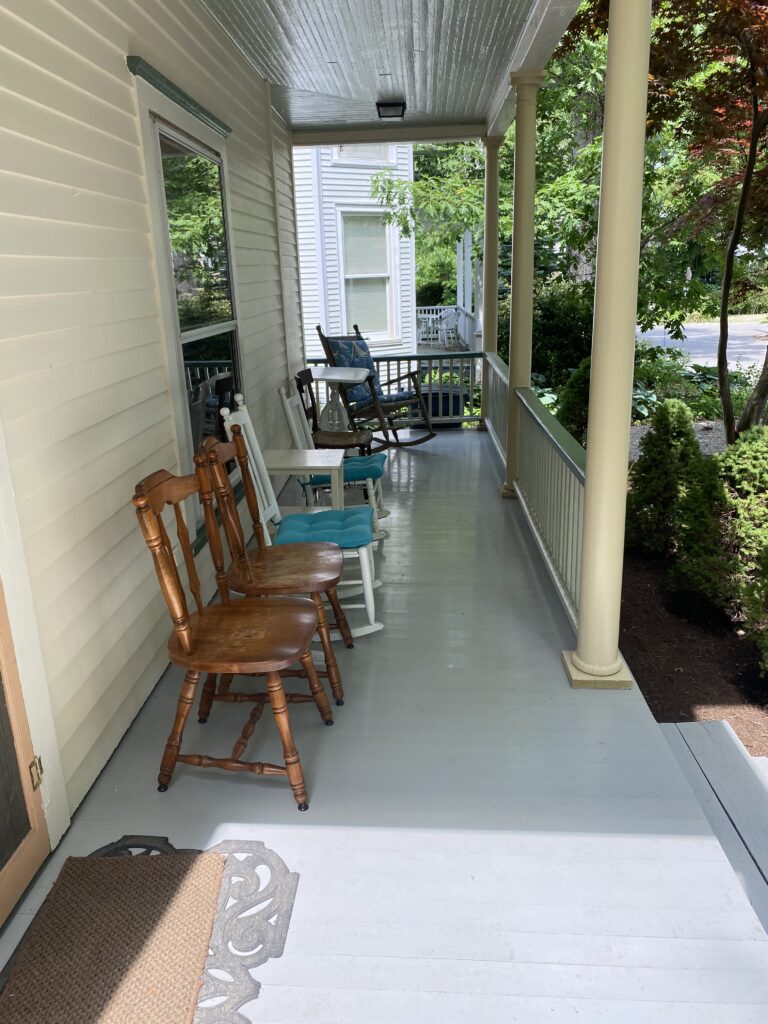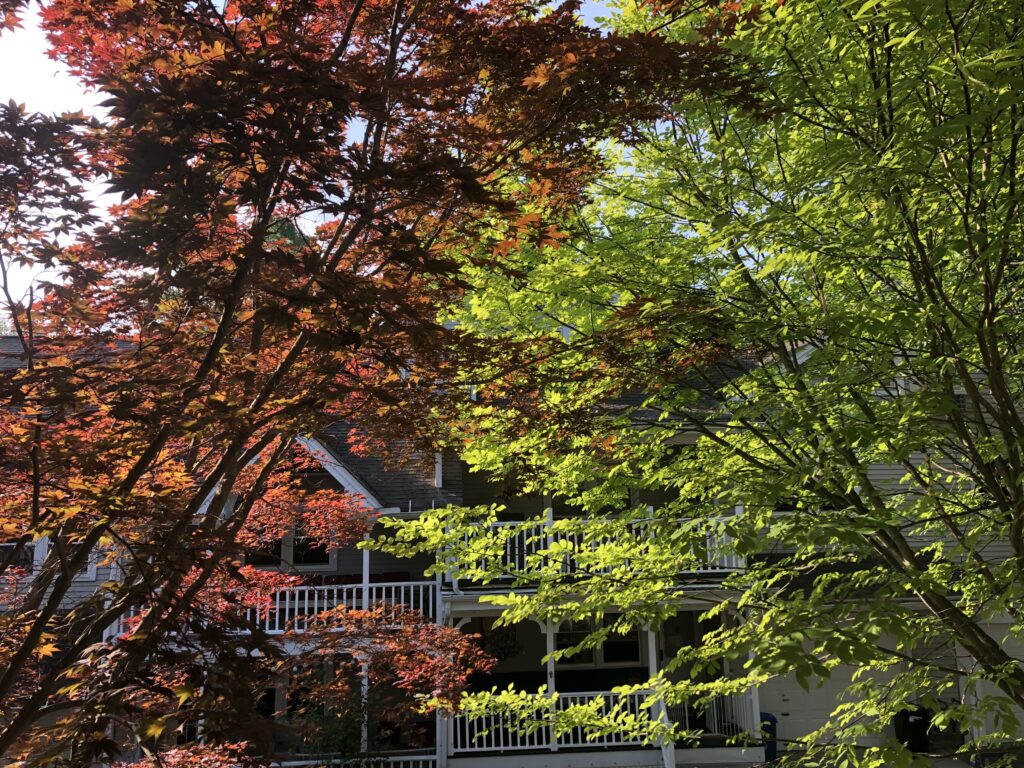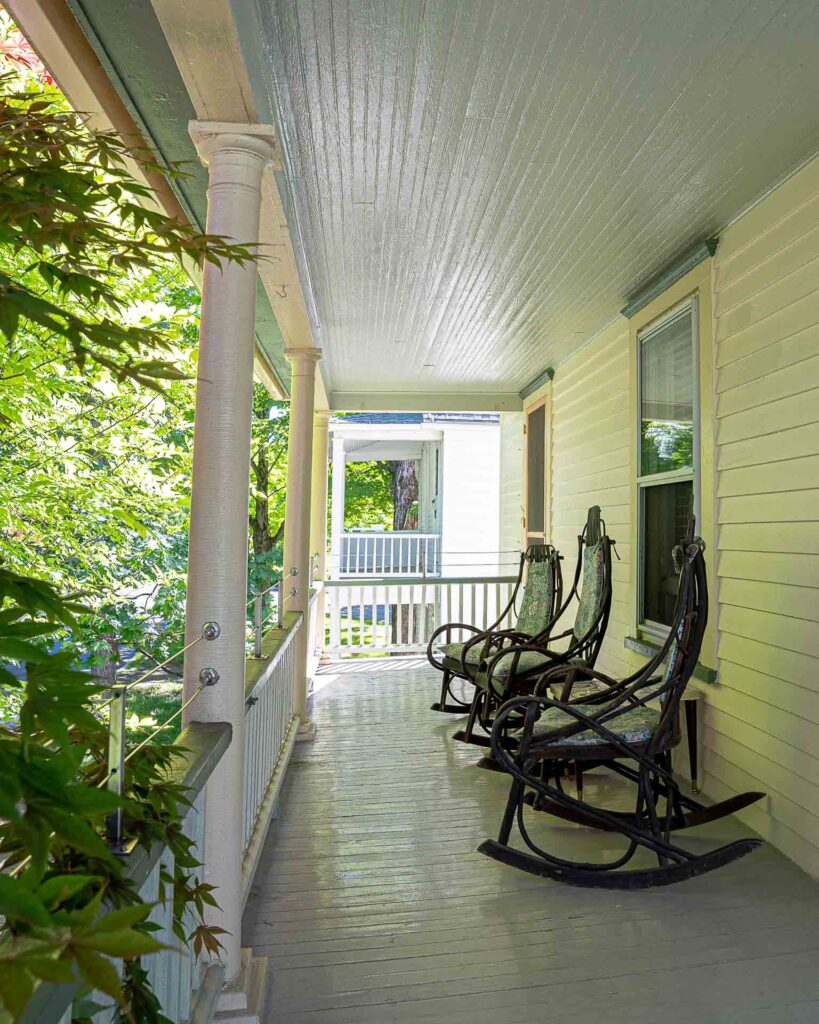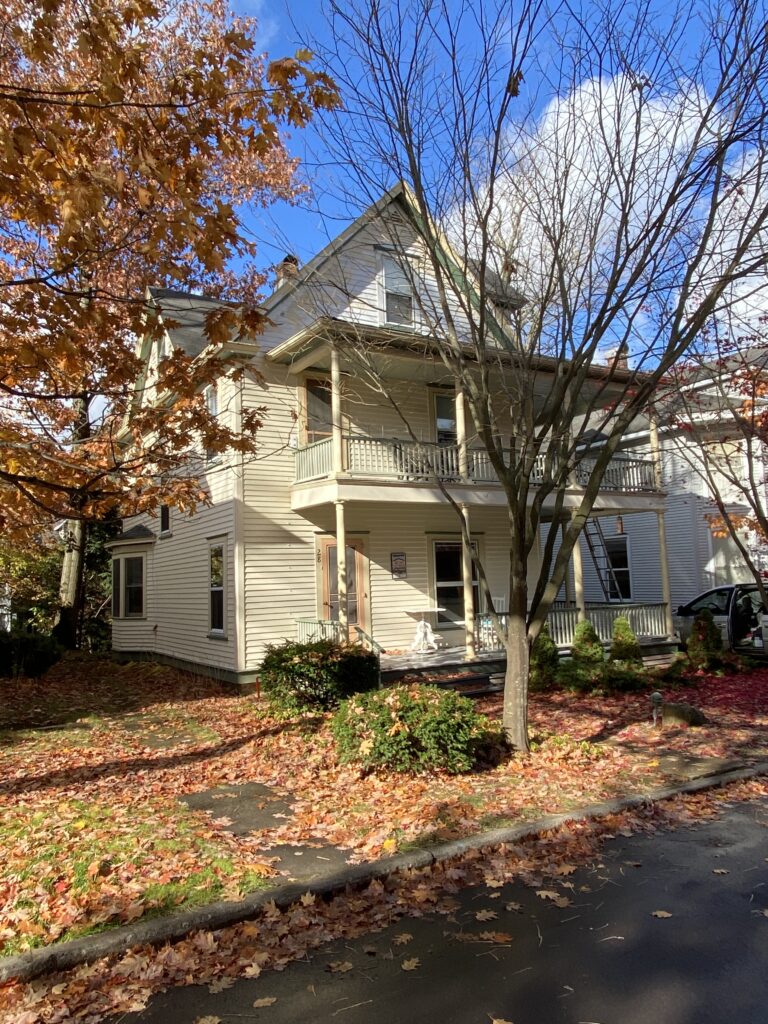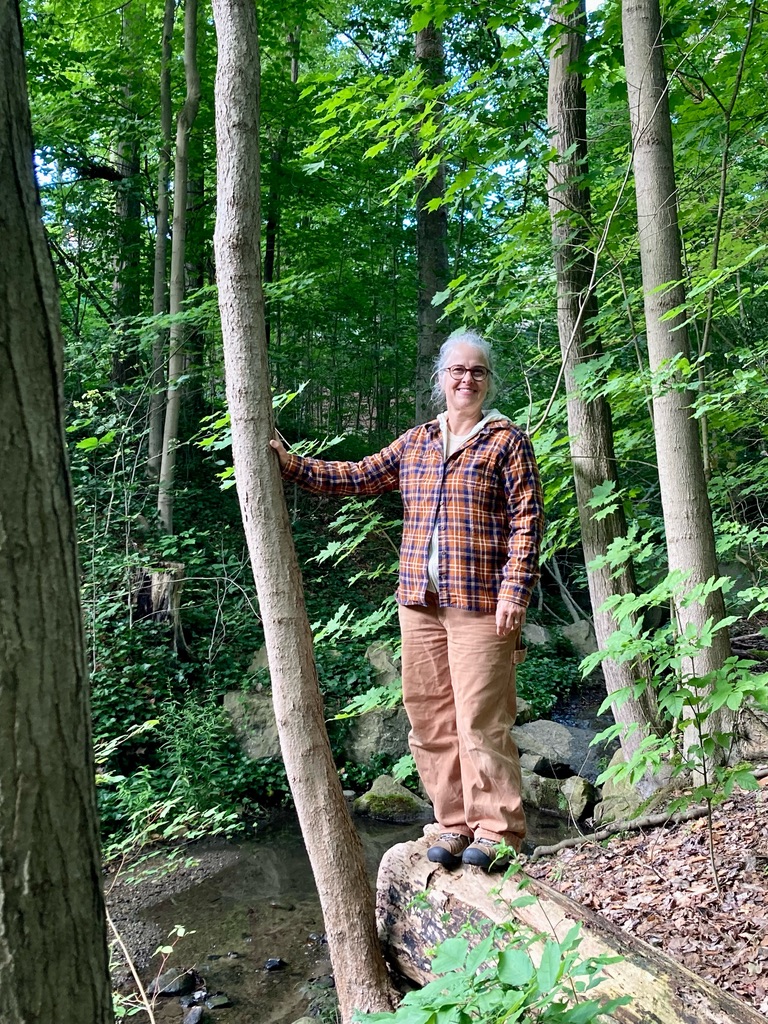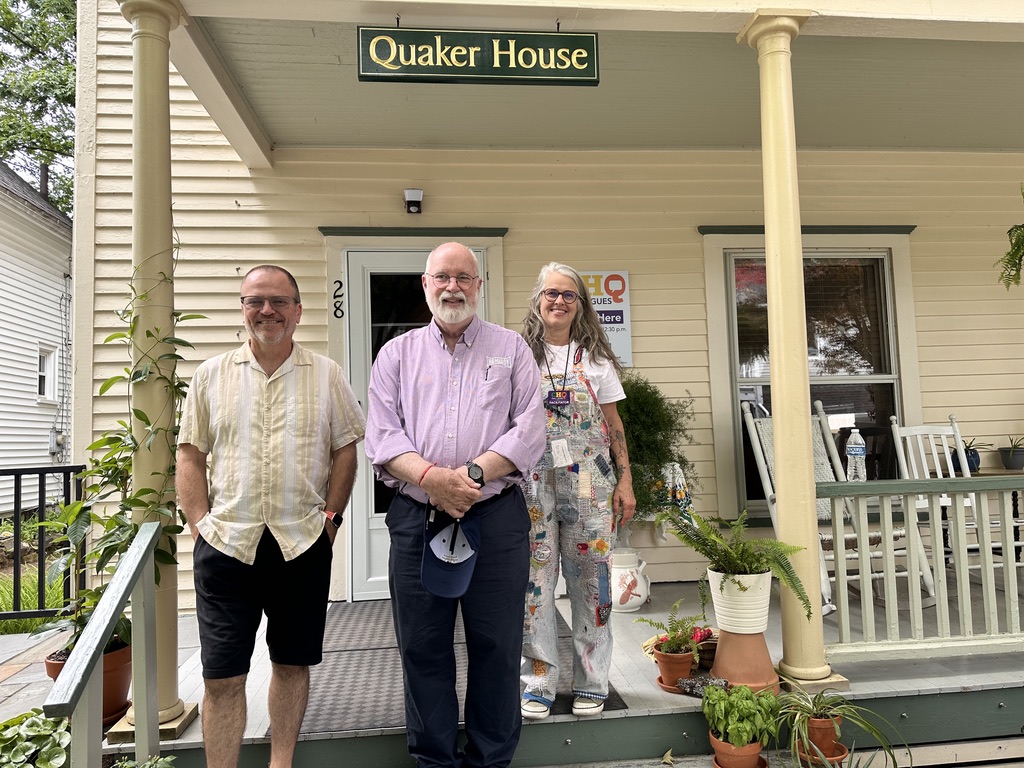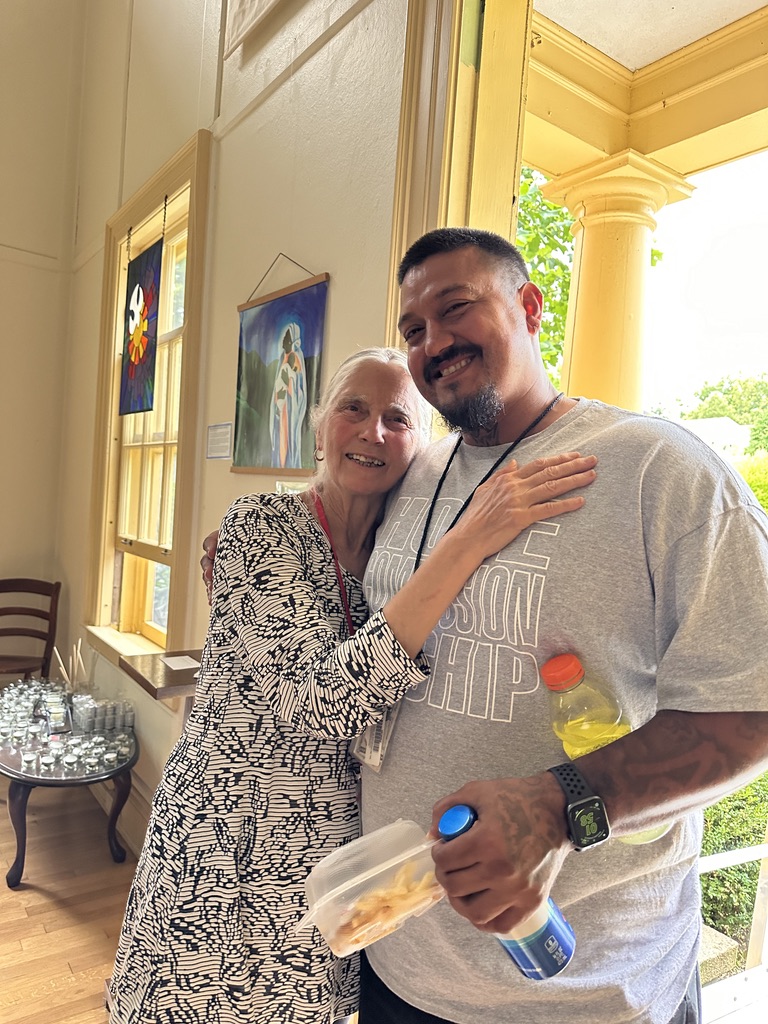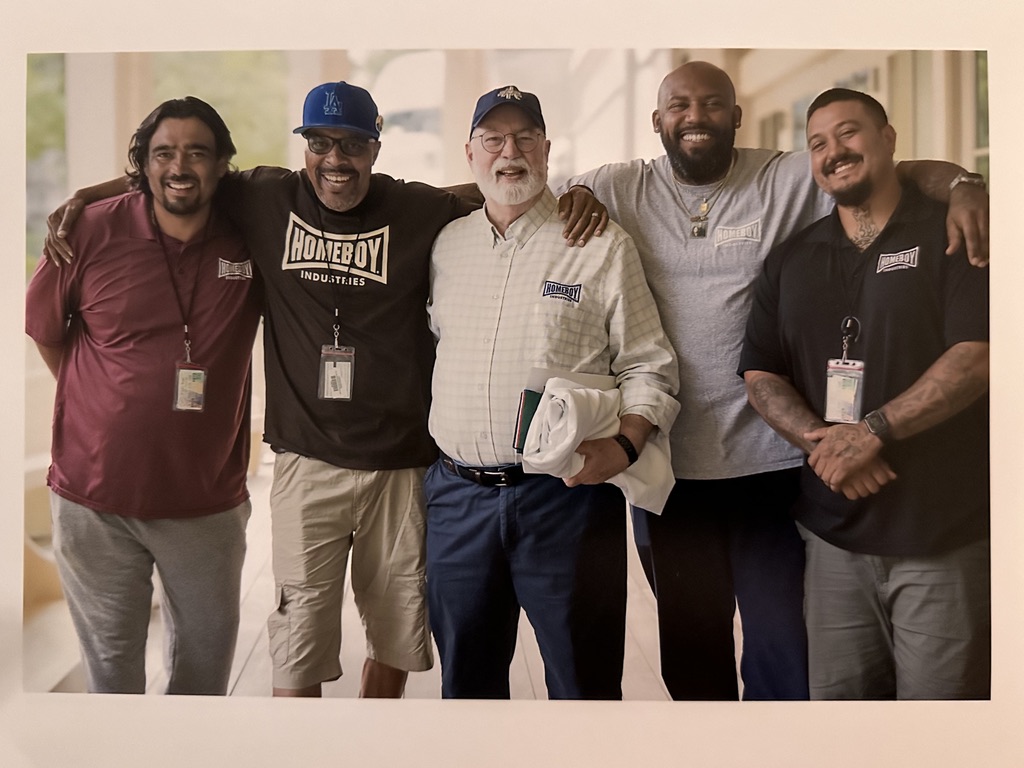Quaker House at Chautauqua
Welcome to Quaker House.
In 2025 we will celebrate our 5th year on the grounds at Chautauqua Institution. Located only a few blocks from Bestor Plaza, we offer weekly Quaker worship, accommodations, and both formal and informal programming throughout the summer. Each week of the Chautauqua season Quaker House welcomes a Friend of the Week who brings their wealth of experience as a Friend into Quaker House. Each Friend of the Week shares programming about their “Work in the World” and a “Quaker Perspective on the Theme of the Week”. In an effort to promote diversity and inclusion on the grounds we also host and collaborate in a variety of ways within the Chautauqua community. Some of our collaborators include Homeboy Industries and the African American Heritage House. Our house hosts, our Friends in Residence, bring their own Quaker presence, hospitality, and creativity into their service of Quaker House.
2024 Season Attendance
In the 2024 season, Quaker House welcomed 1,116 people thru its doors for worship and scheduled programing. Our gatherings continue to increase engagement with both the larger Chautauqua community and beyond the Institution.
233 – Meeting for Worship
233 – Thursday Lunch Discussion: A Quaker Perspective on the Theme of the Week
175 – Tuesday Lunch Discussion: My Work in the World (FOW work as a Quaker)
193 – Church of the Wild (Sundays at 4pm)
200 – Homeboys Industries presentations/gatherings (supported thru Quaker House)
82 – Social Hour aided by our Cookies and Community Care initiative.
At the intersection of Chautauqua Institution and the Quaker Faith,
we have found a source of the living water. We invite others to this place.
All are welcome here.
Visit Us
Housing
We offer four bedrooms for rent during the summer season at Chautauqua Institution.
We also offer affordable off-season retreat space for spiritual and community groups committed to making a difference as well as anyone desiring a quiet retreat space during the “shoulder” seasons (the few weeks before and after the Institution’s regular season). During the shoulder seasons we have five bedrooms available.
Worship in the Manner of Friends
Quaker Meeting is based on gathering in community to listen for the “still small voice within.” Such gatherings often amplify our own efforts to hear what Spirit has to say. Sitting in this expectant silence, some may feel called to offer Spirit-led vocal ministry.
We gather for unprogrammed worship on Sundays – 9:30am
(during the summer season)
All are welcome.
More About Chautauqua Institution
Mission Statement:
Chautauqua is dedicated to the exploration of the best in human values and the enrichment of life through a program that explores the important religious, social and political issues of our times.
